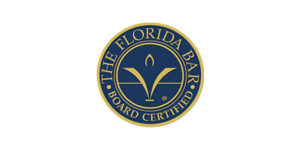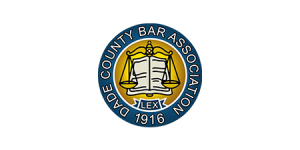






Brain and Spinal Cord Injury Claims
Brain and spinal cord injuries are among the most devastating types of injuries that a person can endure. These injuries can happen for a number of different reasons such as car accidents, slip and falls incidents or hazardous work conditions. Brain and spinal cord injuries can result in severe pain, financial hardship and considerable medical bills. If your injury occurred as a result of someone else’s negligence, like another driver, store owner or employer, you may be eligible for compensation to cover your financial difficulties brought on as a result.
What is a Spinal Cord Injury?
The spinal cord is a bundle of nerves encased within the spinal column connecting to the brain. These indispensable nerves are responsible for carrying messages to and from the brain and body. These nerves play a fundamental role in disseminating information to nearly every part of the body, so injuries to the cord can be devastating.
Full or partial loss of motor control and/or perception to the senses from the neck down can occur as a result of a damaged, severed, pinched or injured spinal cord. This could result in the injured person becoming paraplegic, paralyzed below the waste, or quadrriplegic, paralyzed below the neck. In extreme cases of spinal cord injuries, the result may even be fatal.
How Does a Spinal Cord Injury Affect the Brain?
Spinal cord injuries are so debilitating due to these paramount nerve pathways that facilitate communication to the brain. Hemiplegia refers to total paralysis on one side of the victim’s body, which often results from brain damage.
A person who suffers a brain injury may not immediately demonstrate physical signs of the damage. It can often take days, weeks or even months for symptoms of a brain injury to appear. Such an injury can affect personality, memory, reason and temperament. This can lead to frustrating obstacles during the road to recovery.
It is important to note that a loss of consciousness or significant head trauma is not required to cause a traumatic brain injury. If you or someone you know has sustained trauma to the head, monitor for signs of:
- Severe headaches
- Confusion
- Unusual fatigue
- Numbness or weakness on one side of the body
- Nausea and dizziness
Early intervention for this type of injury is ideal and even crucial to maximizing recovery. During this time, a brain and spinal cord injury attorney can work towards securing early financing from the victim’s insurance company to aid with rehabilitation and attendant care.
Determining Fault for Brain and Spinal Cord Injuries
Not every brain or spinal cord injury is subject to a personal injury claim or lawsuit, but injuries that occur as a result of negligence, defective products or medical malpractice often are.
Negligence caused spinal cord injuries occur as a result of someone who was not doing or did not do something they were supposed to. In this case, the injured party will have to prove that the defendant strayed from their duty of care. Defective product caused spinal cord injuries occur as a result of a designer, manufacturer or seller who sold an unjustifiably hazardous product when being used for its intended purpose without any adjustments or interferences.
All too often, common defenses are used to minimize or deny a personal injury claim, such as:
- Denial of injury. If a victim does not take proper steps to document their injury, the defense may later argue that the accident did not cause the injury.
- Contributory and comparative negligence. This argues that the injured person is at fault for their own injury so the defendant is not legally responsible.
- Assumption of risk. This implies that the injured knew or should have known that they were taking part in a dangerous event and thus likely to result in injury.
Common Causes of Brain and Spinal Cord Injuries
According to the National Spinal Cord Injury Statistical Center as well as the Mayo Clinic, common causes of these injuries include:
- Motor vehicle accidents. These make up for more than 42% of brain and spinal cord injuries each year. Traffic accidents often occur as the result of negligence making victims eligible for an injury claim.
- Falls. These make up more than 26% of spinal cord injuries. Accidents as a result of a fall commonly occur because of old age or due to a hazard.
- Assaults and violence. Acts of violence make up for more than 15% of spinal cord injuries. This may occur in a number of different scenarios, such as a gunshot or battery.
- Sports activities. These make up around 8% of spinal cord injuries. Football, baseball, diving and other athletic activities can cause serious injuries.
- The other 8% or so of spinal injuries occur due to other causes such as boating accidents, disease or even medical malpractice.
Brain and spinal cord injury cases are often complex, involving legal and medical issues that other injury cases may not. Complicated issues of fault, medical diagnosis, treatment and future prognosis will need to be handled properly with an attorney experienced in dealing with this specific type of injury.
The law firm of Panter, Panter & Sampedro specializes in brain and spinal cord injury settlements. We are committed to helping victims recover their losses, whether as a result of negligence, a defective product, or medical malpractice. Call today to schedule a free consultation and case evaluation with our experienced brain and spinal cord injury attorneys.
